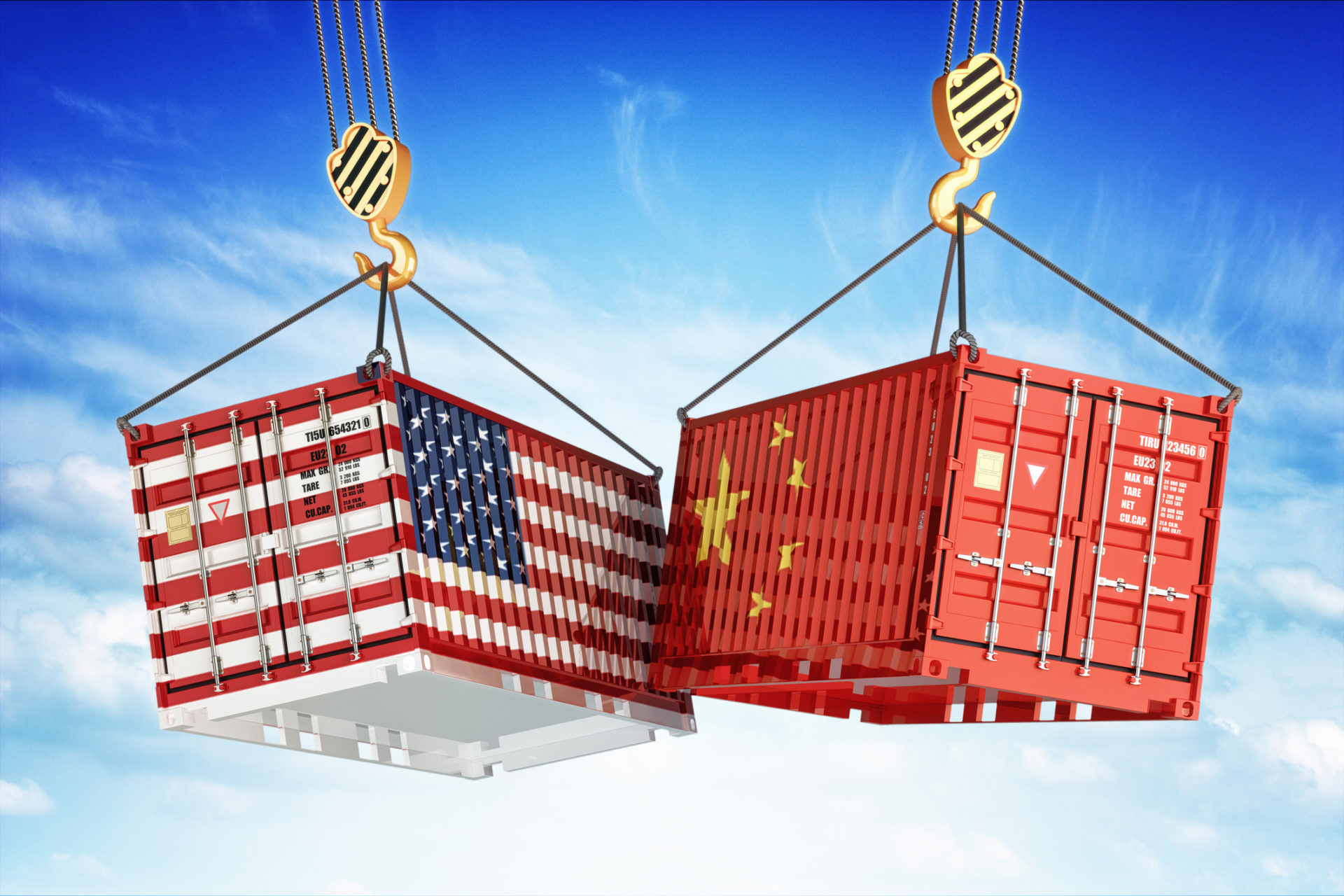How the Stock Market Reacts to China-US How the Trade tensions between China and the United States aren’t just diplomatic sparring matches; they’re seismic events for global financial markets. Every new tariff announcement sends tremors through the stock exchange, triggering waves of buying, selling, and speculative frenzy.
When two economic titans clash, the market’s reaction to tariffs becomes a focal point of global attention. Investors don’t merely observe; they react—swiftly and often emotionally.
The stock market response to tariffs is an intricate dance of fear, opportunity, and geopolitical calculation. This isn’t a simple numbers game; it’s economic chess on a global board.

Tariffs: More Than Just Taxes on Trade
At its core, a tariff is a levy imposed on imported goods. But in the context of US-China trade relations, tariffs morph into strategic weapons. They disrupt supply chains, inflate production costs, and ripple through consumer markets.
Each announcement of new tariffs becomes a lightning rod for investor sentiment. The financial markets’ reaction to trade tariffs transcends traditional economic logic, often driven by perception as much as reality.
Immediate Market Reactions: Volatility Unleashed
Markets crave certainty. Tariffs represent unpredictability. The stock market reaction to tariff news is typically swift and severe.
- Initial Sell-Offs: Upon new tariff declarations, equities—particularly those of multinational corporations—often plummet.
- Sector-Specific Shockwaves: Industries deeply entwined with global trade, such as technology and manufacturing, experience sharper declines.
- Flight to Safety: Investors pivot towards safer assets like bonds, gold, or utility stocks.
The stock market response to tariffs is rarely muted. Even the hint of a tariff escalation can send markets into a tailspin.
Sectoral Sensitivities: Uneven Battlefield
Not every sector feels the sting of tariffs equally. The market impact of tariff disputes is magnified in industries heavily dependent on international supply chains.
Technology Under Fire
Tech giants are often caught in the crosshairs. Companies like Apple and Tesla, reliant on Chinese components and consumers, see their shares oscillate wildly following tariff news.
Industrials and Manufacturing: The Traditional Casualties
From Boeing to Caterpillar, American industrial titans face higher input costs and retaliatory barriers, intensifying the market’s reaction to tariffs.
Agriculture: The Silent Victims
Beijing’s countermeasures often target American farmers, affecting companies in the agriculture sector. This agricultural tension further stokes the stock market response to tariffs.
Historical Case Studies: Trade Wars in Action
2018: The Beginning of a Storm
March 2018 witnessed the initiation of tariffs on $50 billion worth of Chinese goods. The Dow Jones Industrial Average nosedived, exemplifying the volatile stock market response to tariffs.
Tit-for-Tat Escalations
As the U.S. upped the ante, China retaliated with tariffs on American goods. Every new announcement punctuated by market tremors—proving that the financial market response to trade disputes is far from rational.
2019 Phase One Deal: A Temporary Respite
When both nations signaled a truce with the Phase One trade deal, markets soared. The stock market’s reaction to tariff easing was euphoric, showing the flipside of this economic saga.
Algorithmic Trading: The Machine-Driven Frenzy
Modern markets are turbocharged by algorithms. High-frequency trading systems digest tariff headlines in milliseconds, triggering automated buy or sell orders.
This AI-fueled stock market reaction to tariff news often exacerbates volatility. A minor phrase in a press release can cascade into a 500-point market swing within minutes.
Currency Manipulation: An Underlying Factor
Tariff skirmishes inevitably spill over into currency markets. A strategic yuan devaluation by China dilutes the effect of American tariffs, but simultaneously roils global equities.
The stock market’s sensitivity to trade-induced currency shifts adds another layer of complexity to the already volatile market response to tariffs.
Investor Psychology: Fear, Panic, and Herd Behavior
Beyond algorithms and balance sheets, human emotion remains a powerful driver. The stock market response to tariffs is often an emotional knee-jerk reaction:
- Loss Aversion: Investors overreact to perceived threats, dumping stocks at the slightest hint of trade escalation.
- Herd Mentality: Panic spreads quickly, turning isolated sell-offs into market-wide routs.
- Overconfidence on Truce Announcements: Conversely, any hint of reconciliation fuels irrational exuberance.
Media Influence: The Narrative Engine
The media’s role cannot be overstated. Headlines shape perceptions, amplify fears, and occasionally misrepresent nuances.
The stock market’s immediate reaction to tariff news is frequently based more on headline sensationalism than on in-depth analysis of economic impact.
Long-Term Implications: The Slow Burn of Tariff Wars
While initial reactions grab headlines, the long-term stock market response to tariffs manifests in more subtle ways:
- Supply Chain Reengineering: Corporations diversify production bases away from China, reshaping global manufacturing landscapes.
- Investment Reallocation: Funds shift towards sectors and regions perceived as insulated from trade skirmishes.
- Inflationary Pressures: Rising input costs seep into consumer prices, influencing company earnings and stock valuations.
Central Banks to the Rescue?
Tariff-induced economic uncertainty often prompts intervention from monetary authorities. The stock market reaction to tariffs is thus interlinked with interest rate cuts, liquidity infusions, and dovish policy signals from central banks.
Such interventions act as stabilizers, cushioning markets from the full brunt of tariff impacts.
Strategies for Investors: Navigating Tariff Turbulence
Hedging Against Volatility
Derivatives like options and futures become critical tools for investors seeking protection against tariff-driven market swings.
Sectoral and Geographic Diversification
Shifting portfolios towards domestic-focused sectors or less-exposed international markets mitigates risks associated with stock market reactions to tariffs.
Long-Term Perspective
Astute investors avoid getting swayed by immediate market overreactions, focusing instead on fundamental valuations and strategic growth trajectories.
Future Outlook: Evolving Trade Dynamics
As global commerce evolves, so too will the nature of tariff disputes. Digital goods, intellectual property rights, and data sovereignty are poised to become new arenas of contention.
The stock market response to future trade barriers may differ, influenced by shifting economic paradigms and lessons learned from past trade wars.
Conclusion: Tariff Announcements as Market Catalysts
The saga of US-China tariffs is a compelling study in how geopolitics directly influences financial markets. The stock market response to tariffs encapsulates a confluence of economic fundamentals, investor psychology, media narratives, and algorithmic precision.
For investors, understanding this dynamic is paramount. Tariffs are more than trade tools—they are market-moving missiles that demand vigilance, agility, and strategic foresight.
In a world where a single tweet can wipe out billions in market value, mastering the nuances of the stock market’s reaction to tariffs is not optional. It’s essential.
Would you like me to also prepare a visual summary (cheat sheet) of how stock markets react to tariff news, with key points and timelines? Reply with “Yes, cheat sheet” if you’d like that.






